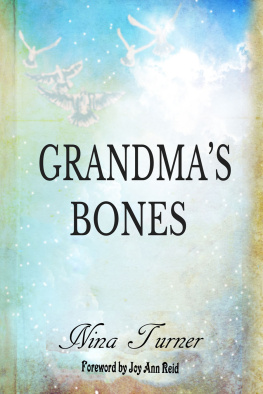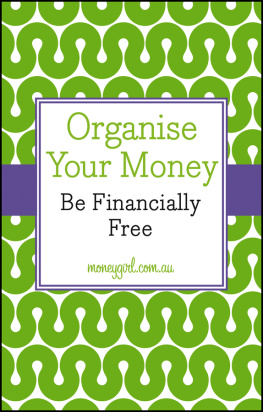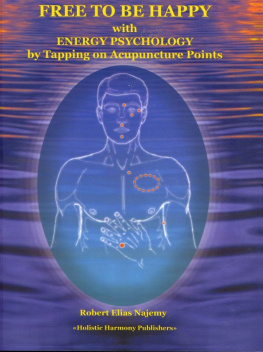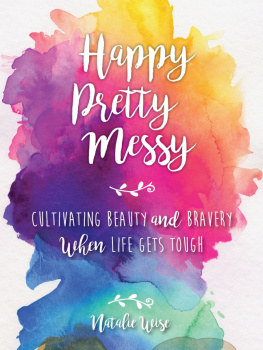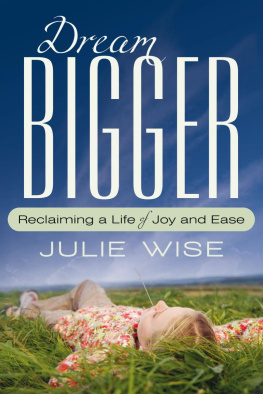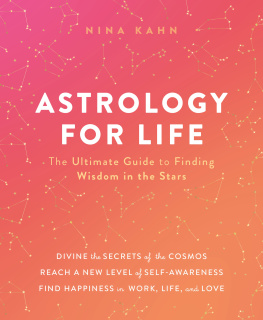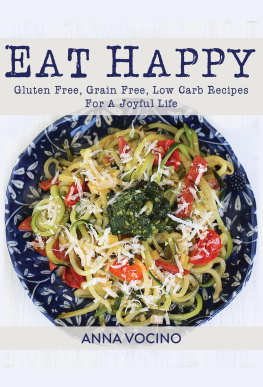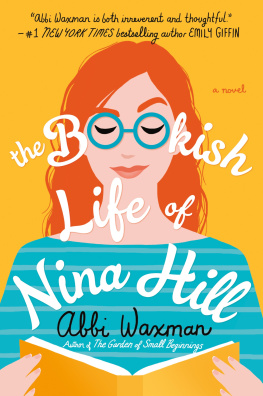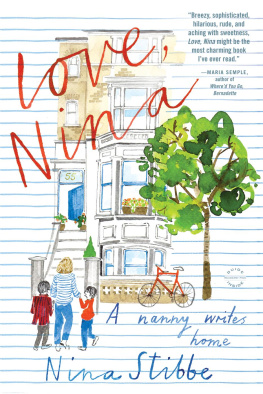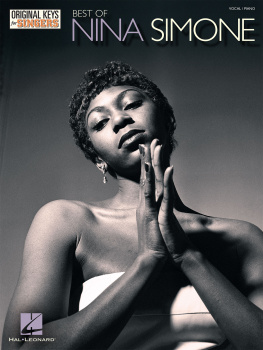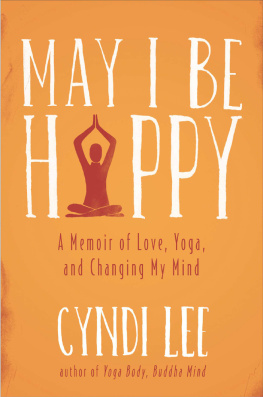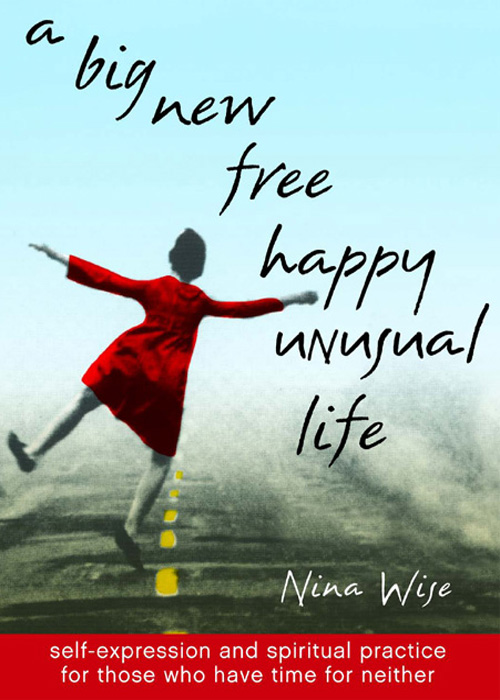
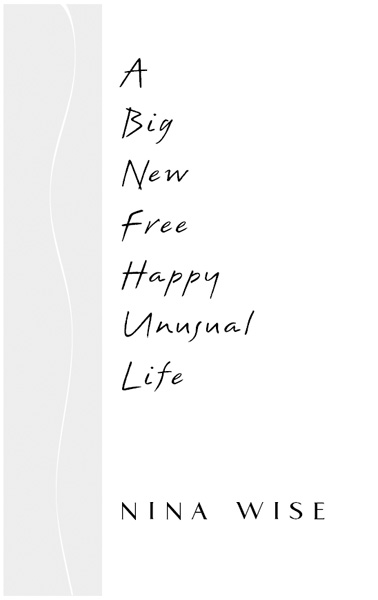
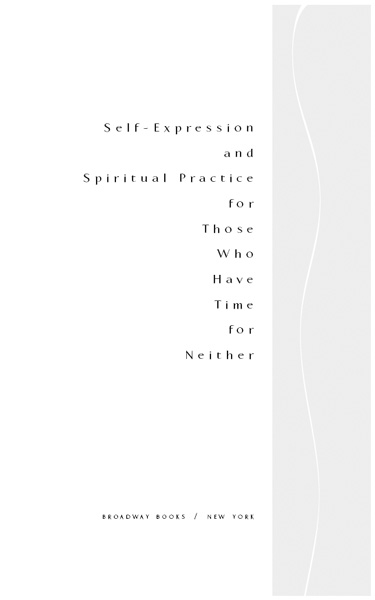
Contents
This book is dedicated to my mother, who was fired from teaching elementary school when she insisted that drumming was as important as learning arithmetic; and to my father, who passed away before the book was bound, yet from the great beyond continues to radiate his enthusiastic support.
The title of this book is borrowed from Grace Paleys short story Goodbye and Good Luck (The Collected Stories). A suitor is asking the protagonist for her hand. He says, Rosie, I offer you a big new free happy unusual life.
I have been deeply inspired by Grace Paley over the yearsby her wit, her intelligence, her wordsmithing, and the depth of her heart revealed on the page.
Foreword
Sometimes in your life, you meet a person who just makes you laugh, whose infectious spirit makes you want to get up and dance. For me, this person is Nina Wise. Nina brings a remarkable aliveness to her creative work and to this book. And she invites you, the reader, to join her in opening up to the same depth of joy and creativity in your own life.
Ive been told the story of a six-year-old girl who asked her mother where she was going one afternoon. The mother replied that she was headed for the university to teach her students how to draw and paint. You mean theyve forgotten? her daughter asked, amazed. Many of us have forgotten how to give voice to our creativity. And yet it is said that playour ability to let go, dance, sing, createis one of the most wondrous expressions of our aliveness. We enjoy seeing raccoons, otters, monkeys, and children share this happiness. Without nurturing, the vitality of our own body and spirit can dry up. The poet John Ciardi explains an ulcer is an unkissed imagination taking its revenge for having been jilted. It is an undanced dance, an unpainted watercolor, an unwritten poem.
In Zen there is a term called beginners mind, a state of nonjudgmental awareness, of open-mindedness and spontaneity. As you follow the pages of this book, Nina offers a hundred ways to enter the state of beginners mind as you spark, reclaim, and enliven your true creative abandon. Okay, she says, Ill be first, and you see her talking prim New York editors into closing their eyes and hand dancing in their thirty-third floor offices. Now its your turn.
Belt out a song to the sky, sing in your car, or croon an old love song, skat, ska, and slide. Go to the beach and build driftwood sculptures. Dance as if no one is watching. Run, jump, circle, fall. Leave creative messages on your answering machine, paint wild art in secret, have costume parties, depression parties, play games in bed.
Nina reminds us that even our spiritual or religious side can become too serious, a grim duty. So chant, build altars, sing in hospitals even to those who are dying. Cultures like those of India and Bali, or the carnivals of Rio and Venice, remind us how to combine sacred ritual with wild and chaotic beauty. Let the arts flower on every street corner, in every office and school, as the blessings of the gods.
Wake up. Let your life blossom. And let Ninas invitation remind you to laugh, to play, to trust yourself and the creative spirit that abides within you.
May you be happy.
Jack Kornfield
Spirit Rock Meditation Center
Woodacre, California
December 2001
A Note from the Author
I am writing this note on November 2, 2001, six weeks after the destruction of the World Trade Center towers, which caused the death of thousands of people, including hundreds of firefighters who perished in their heroic efforts to save lives. To date, a hospital worker, two United States postal workers, and a journalist have died from inhaled anthrax and several others have been hospitalized with the disease. Reports of hundreds of civilian casualties of the bombing in Afghanistan are beginning to trickle across the airwaves, along with accounts of hundreds of thousands of refugees facing a harsh winter without food or shelter.
The aftershocks of these tragedies befalling ordinary people caught up in unordinary circumstances roll over the country and the world in ever-widening waves of grief, fear, rage, and a grave disappointment in the state of human evolution at the beginning of the twenty-first century. Many of us ponder our personal and collective fate and wonder what we can do as individuals, communities, and societies to participate in the creation of a safe world for ourselves and future generations.
To heal the world, Zen monk Thich Nhat Hanh tells us, we must begin by healing ourselves. He tells the story about boat people fleeing Vietnam who fell prey to wild seas and acts of dehumanizing violence by pirates. If only one person on the boat was able to remain calm and peaceful, the likelihood of survival for all of the passengers was greatly enhanced. We might think of the planet as one of those fragile boats, afloat in a sea that is now stricken with violence. If each of us develops the capacity for equanimity, kindness, and compassion, the likelihood that we will survive as a species and create the kind of world we wish to leave for our children and for their children is exponentially increased.
While our government is urging us to shop til we drop as an expression of our love for our country, most of us understand in our hearts that democracy is not, and has never been, about consumerism. Democracy is about freedom. And freedom is alive and well within us no matter how infrequently we visit the mall. Our longing for freedom cannot be satisfied by cars or houses or diamonds; by private jets or offshore bank accounts or caviar; by miniature computers or mighty weapons. Our longing for freedom can only be satisfied by recognizing that we are each sufficient as we are, and that what feeds us has nothing to do with what we buy and everything to do with an inherent vitality of soul.
Creative self-expression, a time-honored methodology for accessing our spiritual natures, for making contact and giving form to our subconscious, for establishing interpersonal bonds and building community, and for enhancing vitality, is essential to our welfare personally and collectively. We can, together, take this moment in human history to wake up to who we already know ourselves to be: a free people dedicated to a sane and just world made up of individuals who celebrate their common humanity and this planet of indescribable beauty through song and dance, poetry, and care for all sentient beings.
Introduction
I have been performing and teaching improvisation since 1972. Over the decades, I have asked my students what brings them to my workshops and they have reported a singular motive: No matter how satisfying their love relationships, how successful their careers, how remarkable their children, or how voluminous their wealth, they have felt that something was missing in their lives. Many have taken up spiritual practices to address this longing, and while these practices have proved to be effective in cultivating insight and peace of mind, the practitioners have continued to feel an unnamed hunger. I have come to understand that this gnawing in the heart is a longing to rekindle daily life with the spirit of self-expression, spontaneity, and play.
Sometimes when I meditate, I experience an inner glow, a feeling of inherent well-being that seems unassailable. And so I dust off my pillow and stand up, ready to engage in activity. Ten minutes, or an hour, or two hours later, I find myself in a state of frustration or anger or depressionthe workload is too heavy, the traffic is too thick, the state of the world is too malevolent, the time is too shortand my well-being has slipped away, somehow beyond my grasp, ephemeral despite my earlier experience of the steady state of this subliminal underground current of equanimity. I long to find the avenue back, or down, or in, that will lead me to that inner knowing of radiant being that is not dependent in any way on outer circumstances.
Next page

